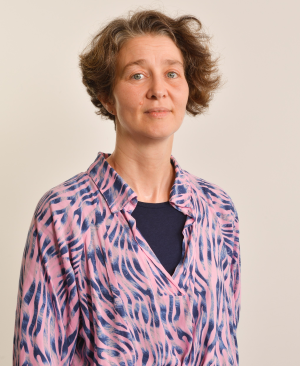- Research Staff
Themes:
- Intersection of environmental science, technology and policy
- Human-computer interaction
- Business studies
- Organisational behaviour
- Risk and governance
Biography
Eleanor holds a PhD in Experimental Psychology from the University of Cambridge. She has worked for two Cambridge start-ups, Sibelius Software and Cambridge Cognition, and has previously held research posts here in the Department and at the Judge Business School, as well as a brief stint at the Cambridge Intel Research Lab (RIP), and a large web design agency in London, then known as LBI International and now called Digitas. She currently works in the Energy and Environment Group for the Cambridge Centre for Carbon Credits (4C), looking at organisational, technological and cultural factors impacting risk management in relation to voluntary carbon credits.
Research
Eleanor is currently the operations manager for the Cambridge Centre for Carbon Credits, and has been project managing the University's purchase of a tranche of high-integrity carbon credits, intended for use by University staff and research students in relation to unavoidable business flights. Her research has mainly focused on the social, cultural and organisational factors which impact on the design, use and integration of technology into larger social systems. She is currently interested in carbon credits as a type of technologically-enabled financial derivative, and in how to overcome the practical challenges of making and selling credible credits based on scientific evaluation of carbon storage.
As part of the Rainbow Group, Eleanor previously worked with Alan Blackwell on the ways gender roles and family dynamics affected patterns of use of domestic technology, and on an action research project designing a tangible user interface for an educational application for classroom use, as part of a wider European research consortium. More recently, Eleanor worked with Philip Stiles at the Judge Business School on a multi-university project jointly funded by EPSRC and BT, looking at the governance and risk management of digital upgrades to BT's network infrastructure, including virtual routers, intent-based networking, automated error detection and predictive maintenance.
Selected publications
Recent/forthcoming/in preparation
Stiles P, Toye Scott E and Debata P (2023) Technology, capitalism and the social contract. Business Ethics, the Environment and Responsibility, 00, 1-11 https://doi.org/10.1111/beer.12567
Toye Scott E, Stiles P and Debata P (2022) Managing New Technology: The Combination of Model Risk and Enterprise Risk Management. Working Paper No. 01/2022, Cambridge Judge Business School, University of Cambridge. https://www.jbs.cam.ac.uk/wp-content/uploads/2022/01/wp2201.pdf
Toye Scott E, Stiles P and Debata P (in preparation) Managing Digital Transformation: The Combination of Model Risk and Enterprise Risk Management.
Toye Scott E, Stiles P and Debata P (in preparation) Five Risk and Governance Themes for Improved Decision-Making in Critical National Infrastructure Industries.
Rotsos C and multiple authors (in preparation) Managing Risk in automated network infrastructures: Challenges and Opportunities.
Journals and technical reports
Blackwell AF, Rode JA and Toye EF (2009) How do we program the home? Gender, attention investment and the psychology of programming at home. International Journal of Human-Computer Studies vol. 67 (4), 324-41
Toye E, Sharp R, Madhavapeddy A and Scott D (2005) Using Smart-Phones to Access Site-Specific Services. IEEE Pervasive Computing 4 (2), 60-66
Stringer M, Rode JA, Toye E and Simpson A (2005) WEBKIT: A Case Study of Iterative Prototyping of a Tangible User Interface. IEEE Pervasive Computing 4 (4), 35-41
Blackwell AF, Edge D, Dubuc L, Rode J and Toye E (2005) Using Solid Diagrams for Tangible Interface Prototyping. IEEE Pervasive Computing 4 (4), 74-77
Toye EF, Madhavapeddy A, Sharp R, Scott DJ, Blackwell AF and Upton E (2004) Using Cameraphones to Interact with Context-Aware Mobile Services. University of Cambridge Computer Laboratory Technical Report UCAM-CL-TR 609, 23 pages.
Rode JA, Toye EF and Blackwell AF (2004) The Fuzzy Felt Ethnography: Understanding Programming Patterns of Domestic Appliances. Appliance Design 2004, reprinted in Personal and Ubiquitous Computing vol. 8, 161-176 Refereed Conference Papers
Rode JA, Toye EF and Blackwell AF (2005) The Domestic Economy: A Broader Unit of Analysis for End User Programming. CHI 2005, 1757-1760
Blackwell AF, Stringer M, Toye EF and Rode JA (2004) Tangible Interface for Collaborative Information Retrieval. CHI 2004, 1473-1476
Stringer M, Toye EF, Rode JA and Blackwell AF (2004) Teaching Rhetorical Skills with a Tangible User Interface. Interaction Design and Children 2004, 11-18
Rode JA, Stringer M, Toye EF, Simpson A and Blackwell AF (2003) Curriculum-focused Design. Interaction Design and Children 2003, 119-126
Stringer M, Rode JA, Blackwell AF and Toye EF (2003) Facilitating Argument in Physical Space. Ubiquitous Computing 2003, 123-6
Stringer M, Rode JA, Toye EF and Blackwell AF (2003) Iterative Design of Tangible User Interfaces. British Computing Society’s Conference on Human Computer Interaction 2003


